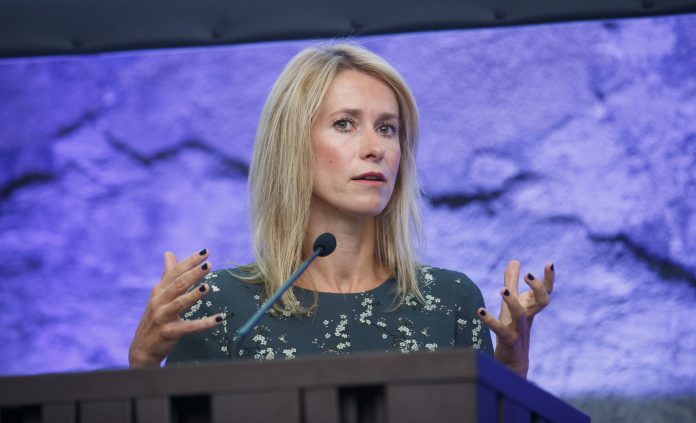Since 1991, the year of Independence, Estonia enjoys a two-party system. The Reform Party and the Centre Party, both liberals and members of the ALDE Group in the European Parliament, alternated in power.
On Sunday, March 3, the Reform Party of former MEP Kaja Kallas emerged the winner of general elections with a 29% of the vote while the Centre Party of the Prime Minister Jüri Ratas received 23%. But this time the two-party system is threatened by the spectacular score of the far-right Conservative People’s Party of Estonia (EKRE) which won the 18% doubling its previous score.
Two more parties, the Isamaa (Pro Patria), an EPP member and the Social Democrats managed to enter the Riigikogu, the 101-seat unicameral parliament of the country.
A quarter of the 881 thousand eligible voters expressed their preference in an e-vote.
Taxes, economy, and the Russians
The major themes the two big parties prioritized during the electoral campaign were related to the economic and financial policy as well as to the education system. In Estonia, it is allowed the teaching of both the Estonian and the Russian languages.
EU’s membership was debated by EKRE.
The other four parties are openly pro-EU and pro-NATO.
Estonia has the lowest debt among the euro-zone members. This is due to a tough austerity policy, supported by the previous governments. Now, rural communities complain of rising poverty.
The two major parties, careful to not abandon their liberal programs, focused on two different needs. Kallas promised to create more jobs although Ratas underline the necessity to maintain the actual state revenues level.
In what concerns the future of the Russian language at schools, Ratas supports the existing system while Kallas and the far-right back wants to abolish it.
The issue of the presence of Russians in the country is very delicate since they represent a quarter of the population. The Russian-speaking schools represent 20% of the country’s school-age population. In addition, many Russians don’t enjoy full citizen rights.
A coalition government
Coalition governments are not unknown in the Estonian political life.
The seats obtained by the five parties in the 101-seat Riigikogu, do not allow the formation of a single-party government.
In fact, the Reform party has 34 seats, four more from the previous elections, the Centre 26, while Pro Patria 12 and the Socialdemocrats 10.
The surprise comes from the far-right EKRE which obtained a score of 19 seats, 12 more from the previous elections.
The two big parties excluded any cooperation with EKRE.
The Reform party seems to be at the centre of the new coalition government and Kaja Kallas will be probably the first female prime minister of the country.
It is very early to predict the coalition partner. In any case, the ‘Russian question’ will have an important role during the negotiations. The abolition of the teaching of the Russian language at schools, supported by Kallas will increase discrimination against the Russian speaking population.
The far-right factor
The rise of the far-right will affect the European elections as well and EKRE will elect MEPs for the first time.
The party campaigned on an anti-immigration, anti-EU and anti-Russia base.
But the reasons for its electoral success lay in the sentiments of threat Estonians feel for Russia.
In what concerns migration, Estonia was asked to take in only 550 refugees. But quite 206 asylum seekers arrived in the country and it is estimated that 80 of those have already left.
In what concerns Russia, EKRE speculated too much over the possible risks and made the abolition of the Russian schools a core part of its campaign.
EKRE while shares many views with the far-right parties in Europe, do not agree with their Russo-philia. This is why will be difficult for EKRE’s MEPs to join the Le Pen-Salvini Group in the next European Parliament.

